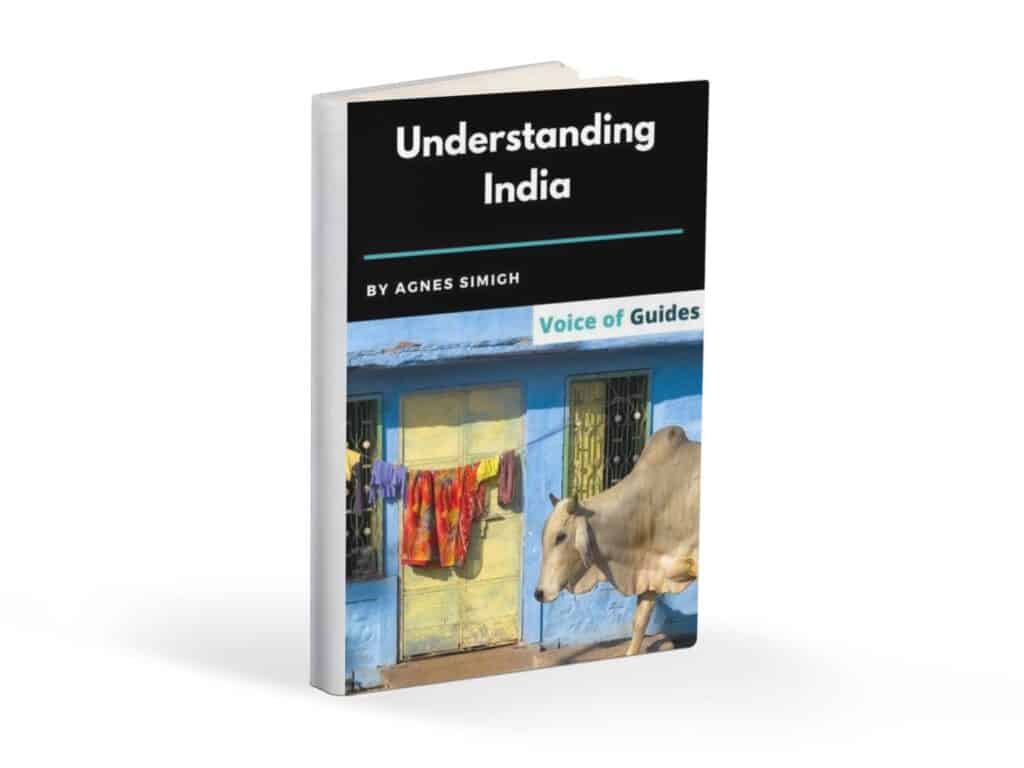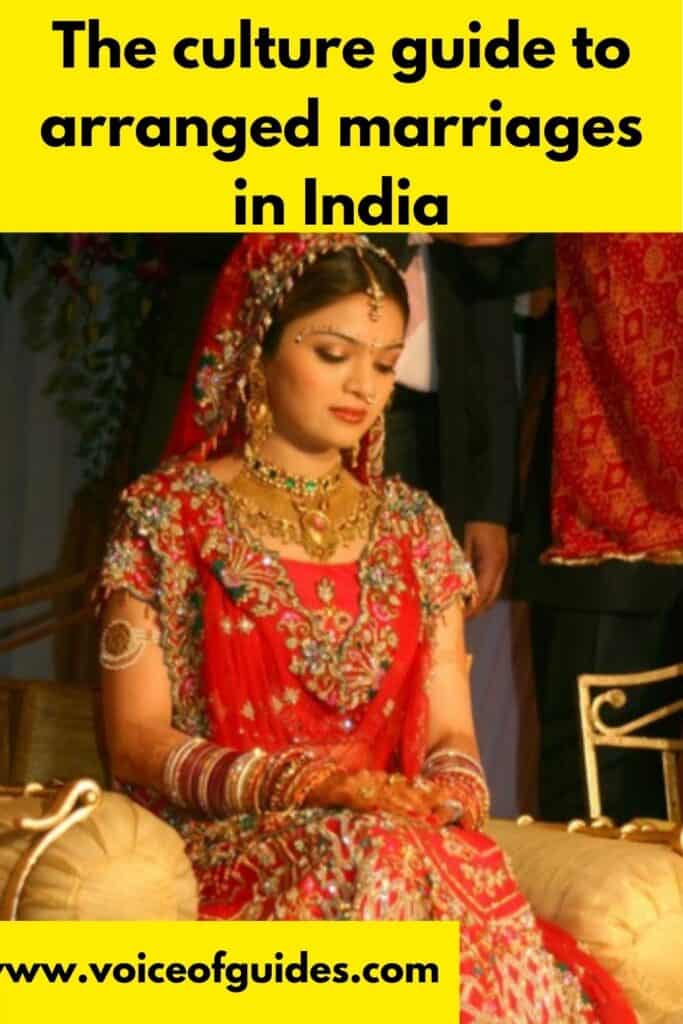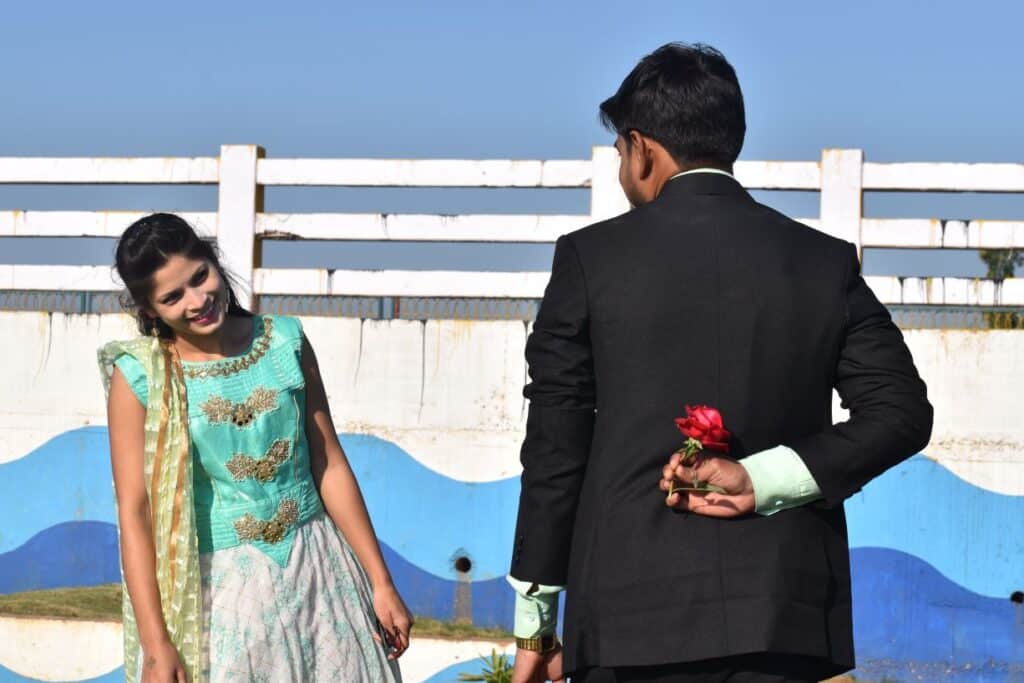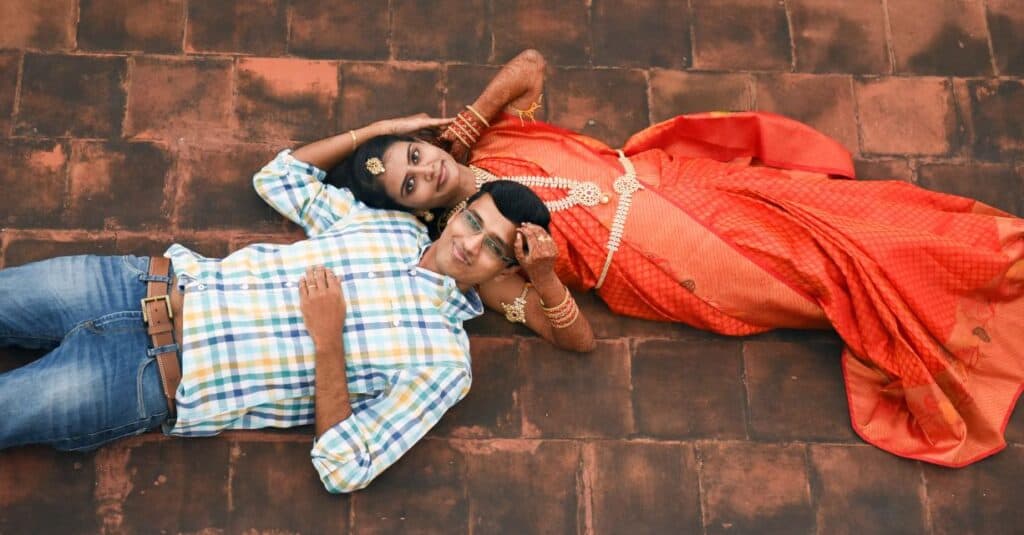A lot has changed in India in recent decades, but one thing definitely not. Most Indians still prefer arranged marriages to love marriages. It is a tradition that they find difficult to break with. Even the Indian intellectuals living abroad return home to choose a partner. They believe that their parents know much better who is the most suitable for them. According to recent surveys, 85% of the respondents prefer that their parents choose the right partner. During previous generations, all marriages were arranged. The tradition of arranged marriages fundamentally defines the Indian culture. This is a culture guide about arranged marriages in India.
The Hindu culture assumes a patriarchal society. It means that women had to be under the patronage of a man at every stage of her life: her father as long as she was unmarried, her husband when she was married, and her son when she was old or widowed.
As women have become more disadvantaged in society, the concept of marriage and her role has changed. Their consent was no longer necessary, and practices such as dowry and child marriage became common.
Read about other interesting cultural stories under this link.
- It all starts with matchmaking
- Criteria for the spouse selection
- The first meeting with the future spouse
- Can couples date in India?
- Ring ceremony – engagement
- Arranged marriage in India today
- Marriage advertisements
- Marriage mediators and detectives
- What is a marriage fair
- Love Marriage in India
- Love does not matter in India
It all starts with matchmaking
In arranged marriages, it can take months or even years to make a perfect choice. Traditionally, this is the duty of the parents. They keep the whole process in their hands. The newlyweds have nothing more to do than appear on their wedding day. Parents first mention among their acquaintances that they are looking for a spouse for their son or daughter. They may also ask for the assistance of a mediator. This mediator usually has a remarkable database of young people who want to get married in the area. Once he selects the future spouse, the parents first meet and discuss the details. During the conversation, they try to understand each other’s financial situation, culture, and attitude.#

Criteria for the spouse selection
They always take into account the following criteria when selecting a spouse:
- Religion is one of the most important when it comes to arranged marriages in India. Hindus marry Hindus, Muslims marry Muslims, and Christians look for Christians. It is probably to preserve their own culture.
- The caste is another decisive factor. Although nowadays you can spot the phrase “caste and sub-caste do not matter” in marriage announcements, parents still prefer someone who belongs to the same caste. They only make exemptions if their child has some disability, in which case they accept a spouse from a lower caste too. Good education and profession can also outweigh the caste differences.
- The cultural background of the family is also essential. Deeply religious Hindu families do not want to ally with a not-too-religious, rather modern-minded family.
- Finally, they compare the horoscope of the two parties to finalize the marriage deal. The astrologer prepares their horoscope based on the position of the Sun, Moon, and planets. It reveals their personality and predictions about his future. According to Indians, the horoscope shows all the relevant stages of your life. The horoscopes provide 36 points, of which 18 must coincide to be a good match. The priest, who composes the horoscope, later prescribes various cures against the harmful effects. If the couple that is not a good match as per the horoscope still decides to get married, they can face trouble the rest of their lives. The family background is carefully controlled for two generations back till the second cousins.
- The profession is a relevant factor only for the groom. He should have a stable, good job and earn enough money to support his family. Accountants, managers, secretaries, IT specialists are a preferred choice these days. The higher your position, the higher your “market value” is.
- For the bride, her beauty is the most important. Lighter-skinned girls have an advantage over darker-skinned girls. For this reason, many people use skin whitening cosmetics. Besides, their housekeeping, cooking, sewing skills, and cleanliness are also on the list. If the groom is handsome or not is less important, provided he has no remarkable physical disability.
Pin it for later!

The first meeting with the future spouse
If the priest gives his blessing based on the horoscope, the groom’s family visits the bride’s house to finalize the marriage. She puts on a beautiful dress, plenty of jewelry, and they place her in the center. Her future family scrutinizes the girl and often asks her questions to test her familiarity with housework. The groom may not attend the first visit yet. Should he be present, they may be able to talk to one another under supervision.
Observing and interrogating the bride may sound humiliating, but their expectations are clear and straightforward.
This type of marriage is an alliance based on friendship, mutual respect, and clear duties rather than love and passion. Many people say the former is more important because sooner or later, love disappears anyway, and then these factors will become relevant in the marriage.
In the countryside, the couple does not even meet each other. Parents and relatives give their decision on behalf of the family. In cities, the couple exchanges photos and meet under certain conditions, in a larger company, or under supervision. If more families are interested in a man, he chooses the most sympathetic girl based on the photo and sends his relatives to her family. Once he made his choice, they can meet at a coffee shop, at the family home, in a temple, but this does not take more than half an hour.
This meeting is more like a job interview, where they find out the most important things about each other and their plans for the future. So first they can meet in the presence of their parents and relatives and later on alone too. They go to the cinema together, walk in a park, or take a boat ride. Then they inform their parents about their decisions. After the meeting, it is vital that the bride and the future mother-in-law also spend time together to see whether they will get along well. The whole process from the first meeting to the wedding takes 7-8 months.
Other interesting facts and stories about India
The couple meets a few times, and if they have no particular reason to reject, they celebrate the engagement. If they think they do not match each other, the parents will accept and start a new search.
Can couples date in India?
In the Western sense, only urban educated boys and girls can date. They are also laughing at the fact that their parents met only once before the wedding. They have more time to get to know each other and court as they usually get married a year later.

But dating is taboo for most Indians. Couples rarely hold hands before marriage. Pre-marital sex is not acceptable neither for men nor for women. If a woman has sexual life before the wedding, it will destroy her reputation for a long time and disgrace her family. If she has sexual relations with somebody from a lower cast, she will be “contaminated” for all her life. In a similar case, a man may be cleansed by ritual washing.
Ring ceremony – engagement
Engagement makes the relationship official. On this day, they announce the wedding date and celebrate the “ring ceremony”.
The priest suggests the wedding date based on the couple’s horoscopes. During engagement parties, the guests always discuss whether the marriage is an “arranged marriage” or a “love marriage”. Interestingly, Bollywood movies are full of overheated glances and romantic stories. But in reality, few people know what it feels like to be in love. So most Indians cannot understand the difference between “like” and “love”.
Arranged marriage in India today
Although arranged marriage is still widespread, the whole process has recently become modern. Families and social habits are changing due to better education and the influence of Western culture. Online dating has revolutionized the process. It means that young people have more and more say in the choice of their spouse.
Internet websites are replacing traditional mediators, and many matrimonial portals have appeared (Bharat Matrimony, Shaadi, SimplyMarry, etc.) in the last decades. The criteria in the choice of a spouse have also changed. In the cities, they prefer working women, whose workplace and position are equally important. Besides being skilled in household activities, education may also be decisive. In urban areas, they require blood tests too. The future spouses can now express their opinion more freely, talk on the phone and meet in public places such as parks, cafes, and restaurants.
Marriage advertisements
Sunday newspapers are full of marriage announcements. Usually, parents have them published and respond to them. Ads are grouped by caste, religion, language then classified like “working women,” “doctors,” or “soldier families.” You can find terms such as:
- “Homey” -a woman familiar with household activities
- “Innocent divorcee”- for a divorced but still virgin woman.
- Catholic education is also an advantage for well-off families.
Previously, a woman over 25 was considered too old to get married, but today if she is educated and looks younger than her age, it is no problem.
The text of ads has changed significantly over the years.
In the 70s you could read: “Brahmin girl, 21, homey, knows how to cook, sew and knit, cheerful personality.”
Today, an ad of a girl having a university degree and working for a multinational company looks like “She looks for software experts, doctors with a six-figure salary,” “dowry seekers rejected.”
Marriage mediators and detectives
Sakhi is a mediator between the couple, usually a relative. He organizes the photo exchange, phone conversations, and meetings. If the boy likes the girl, he can ask the Sakhi to convince the girl’s parents to choose him. Sometimes they use professional mediators or hire detectives to track down the financial and social background of the family. Or he must find out if the potential bride is still a virgin. Sometimes he accompanies the family in disguise as an uncle.
What is a marriage fair
Sometimes there are organized bride and groom auditions where parents register their children. Boys and girls line up and introduce themselves one by one in front of a microphone, and the parents choose the spouse right away on the spot. The number of candidates on each side may be between 20 and 30.
Love Marriage in India
Although love marriages are more and more frequent, couples are still making sure that these feelings remain within the caste and religious expectations of Indian society. If parents also approve of the bride chosen by their son, then the couple in love can get married. It is the so-called„semi-arranged marriage”. Love marriage is for the brave. Unlike arranged marriages where men are offered the bride on a tray, there is a risk of rejection here, but this is how they can develop emotionally.
One reason why the divorce rate is so low is perhaps that if the man did not dare to date, then how he would have the courage to divorce, well knowing that everyone woul oppose it.
In a love affair, education and profession can override caste affiliation. But in some cases, parents are less understanding, and it can lead to family disputes. For example, if one of them is Hindu and the other is Muslim. Or they are both Hindus but belong to very different castes.
Love does not matter in India
A wedding is only the beginning of a relationship in India, and they have big hopes for the future. They are usually not in love but they complement each other and are good companions. They expect that emotions will develop during the marriage and get divorced very rarely due to the lack of love.
Other interesting facts and stories about India
Divorces are rare in arranged marriages, with an average of 1 in 100 marriages ending in divorce. A divorced person has a bad reputation in Indian society, which is a great motivation to stay married. Women are conscientious, adaptive, and accustomed to having fewer opportunities for individual independence. Marriage is a serious business in India. The couple has to do its best to make it work and not fuss about every issue. It is why marriages can work, be it arranged or love marriage.
But one disadvantage of arranged marriages is that they do not develop the ability to make contacts. They do not know how to date, and at the same time, society does not favor that. They work and study hard to easily get a spouse. But precisely, this form of marriage weakens the ability to maintain the relationship, which they could acquire with dating.


